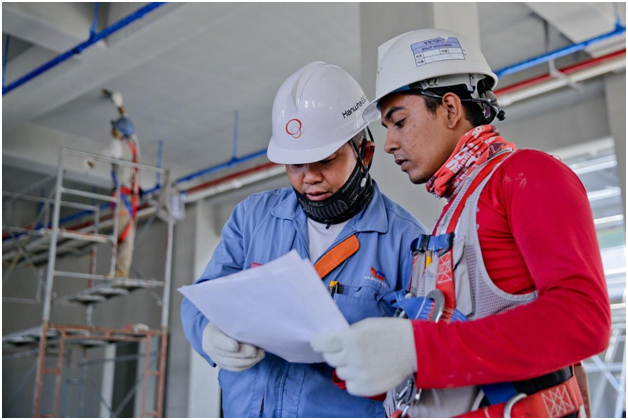When completing a commercial construction project, the last thing you want is more paperwork. Especially after recently acquiring the land or purchasing the building, it’s frustrating to think about the extra work involved with building permits…but it’s a crucial step.
Table of Contents
When and Why Are Building Permits Required?
In truth, this is something that depends on your location. Therefore, it’s best to do some research or contact your local authority directly. By Projects Architecture suggests that building permits are often required for new buildings, repairs, alterations, and other commercial construction projects.
Essentially, the building permit system was originally devised to allow local governments to keep track of all buildings and their safety. Rather than businesses being allowed to do whatever they wish, all projects need to conform to certain safety codes. If this system didn’t exist, owners with very little experience could make unsafe alterations to a building. With no checks, everybody who enters the building from this point forward is in danger.
Just think of yourself as a customer, you wouldn’t want to enter a supermarket or bank in the knowledge that the owner carried out work without a permit. You’d worry about wiring, the roof, and the integrity of the whole building.
Importance of Building Permits
For businesses and property owners, there are a few reasons why building permits are important for commercial construction.
1. Ensure Quality with Contractors
With no permit, there’s no punishment for the contractor if they decide to cut corners and opt for a lower-quality finish. When you have a permit, you can choose a contractor knowing that there’s an incentive to complete the work to a high standard (even if they undercut all other services for price).
2. Put Safety First
Additionally, building permits are important for commercial construction because it places safety at the top of all priorities. You’re telling the world that you have permission for the alterations and that you’re going to adhere to all the vital safety codes while doing so. Not only does this keep people safe once the building work is complete, but it also ensures safe building practices while the work is ongoing.
3. Validate Insurance
That’s right, we’re talking about the all-important insurance that took hours of resource to find and buy. It’s all well and good investing your time finding the right insurance, but this all counts for nothing if you don’t have a building permit for your commercial construction project. Without a permit, insurance companies are unlikely to pay out for mistakes, injuries, and other problems.
4. Guide and Advice
Over the years, many business and property owners have come to see building permits as a nuisance. In many cases, however, they can actually provide guidance for a project. By laying out the important regulations and restrictions, it provides guidance for the outcome in addition to the contractors performing the work itself. Everybody involved in the process can use the permit including plumbers, contractors, builders, electricians, and more.
5. Sell-On Value
Finally, selling the building probably isn’t something that you have in mind right now. However, it’s something that your future self will have to experience. If you don’t have a permit, you can actually encounter problems when trying to sell the property. The new owner will need to pay for a permit and potentially huge changes to the work you performed without one.
Conclusion
With all this in mind, all business and property owners are encouraged to get the right building permit for commercial construction. Contact your local authority or choose a consultancy service for help!

